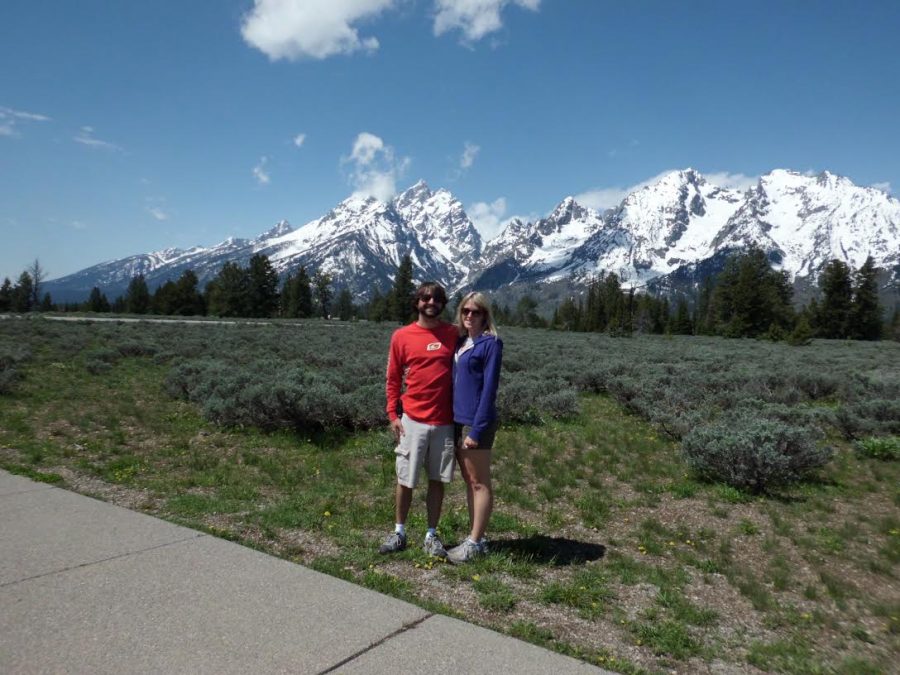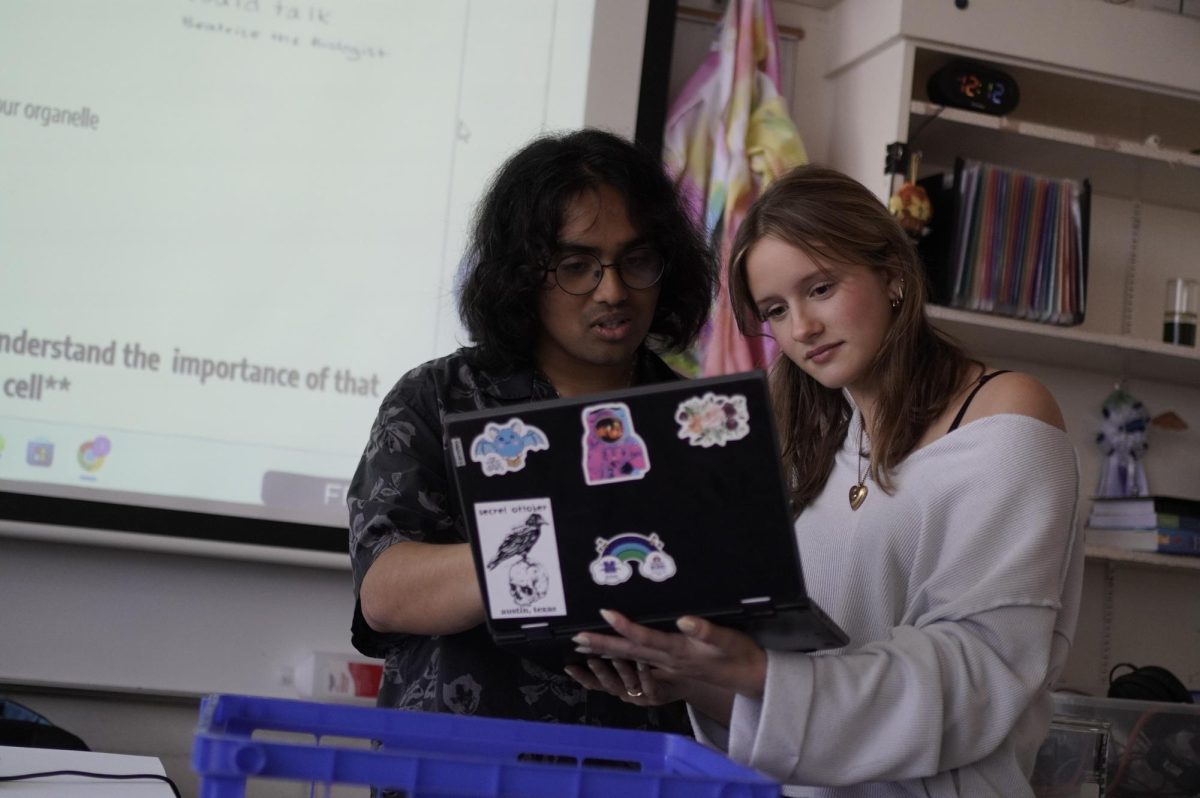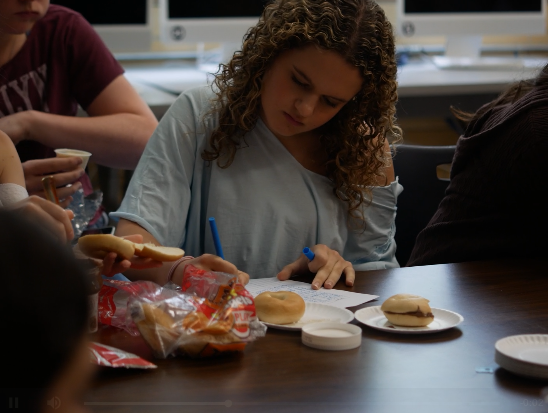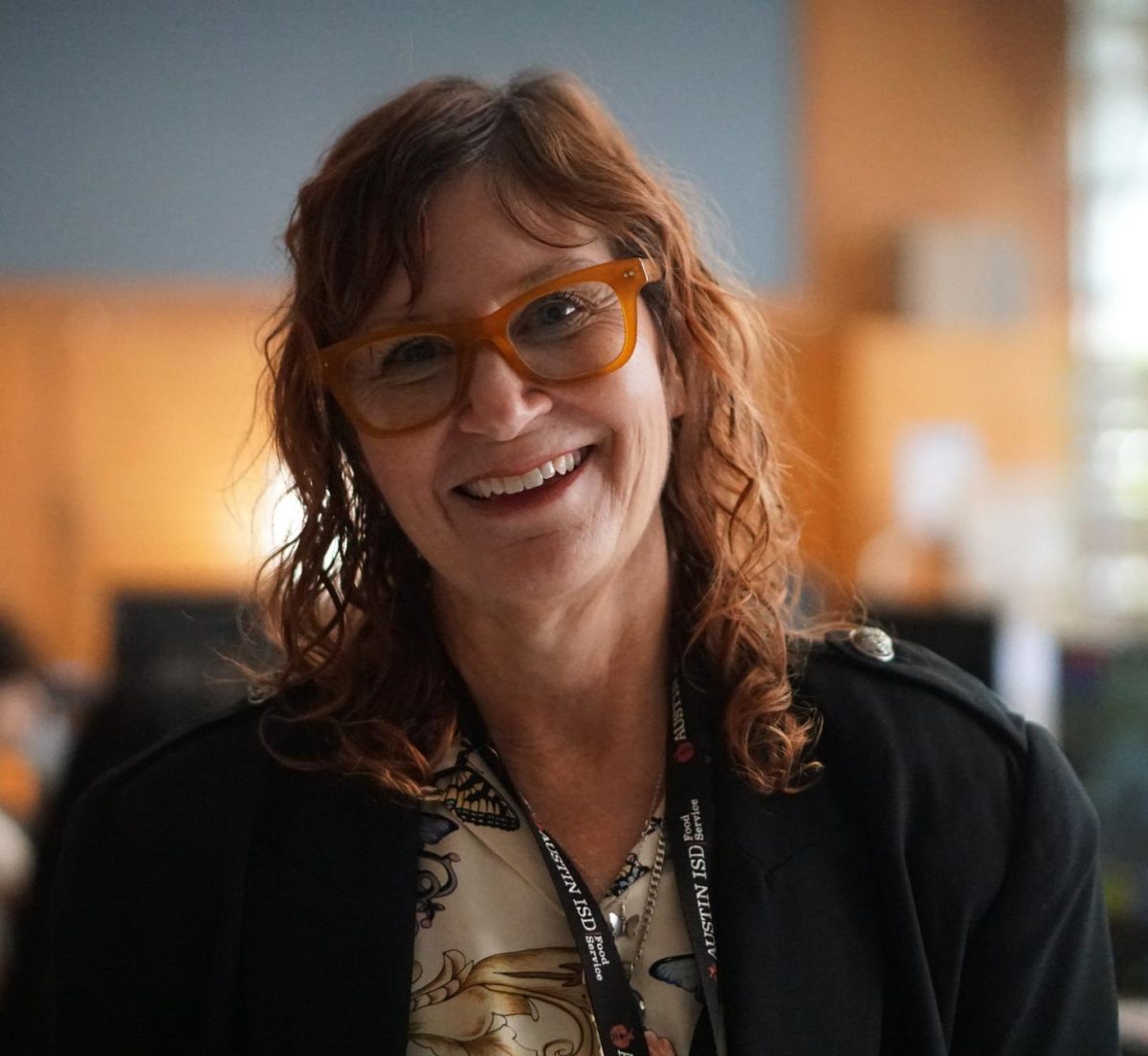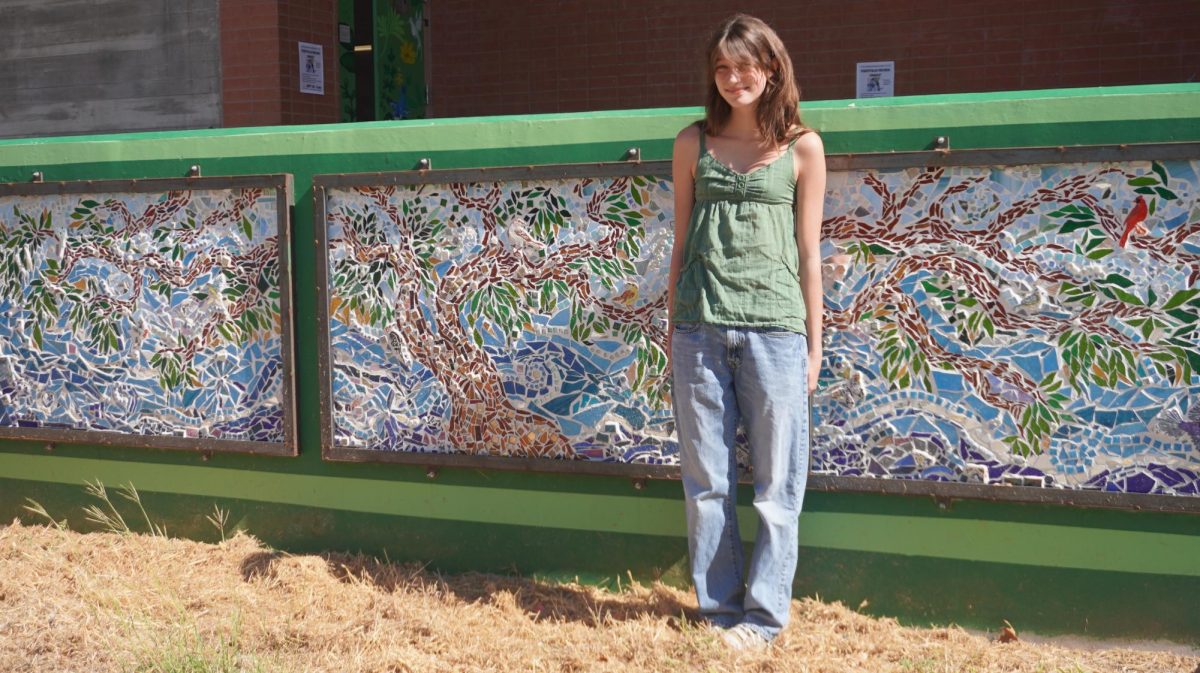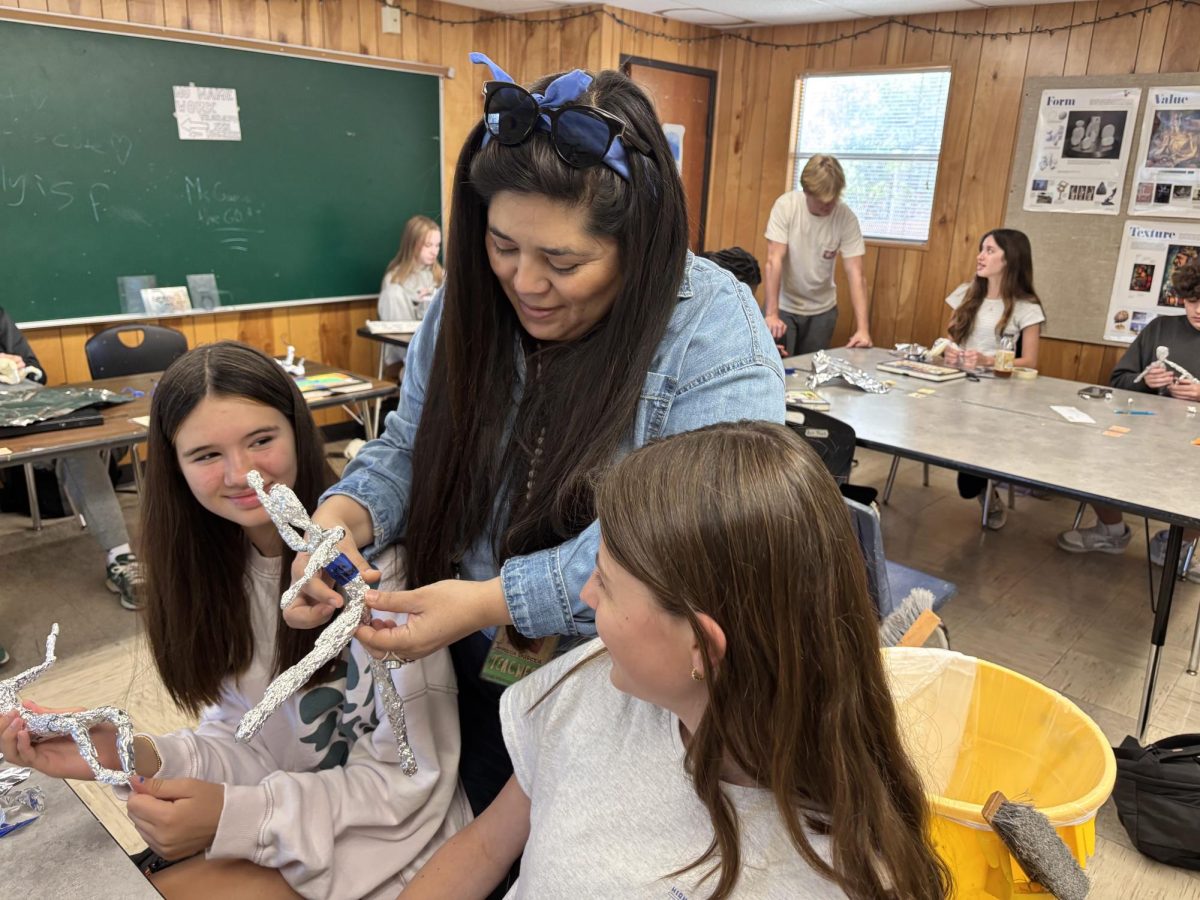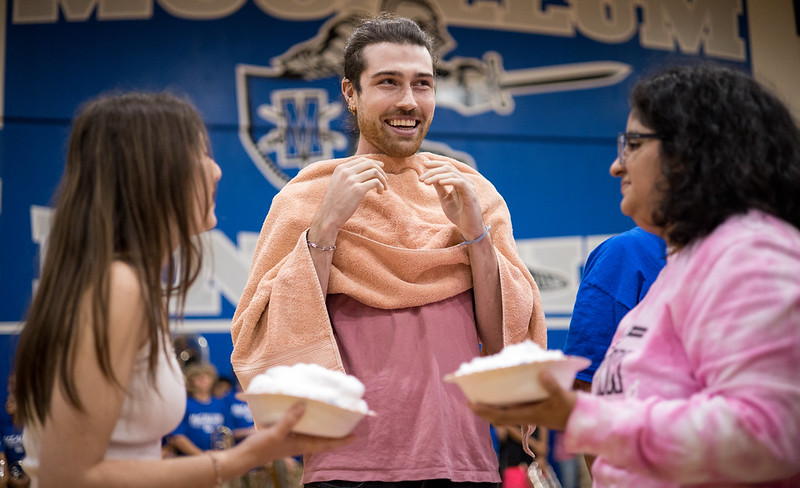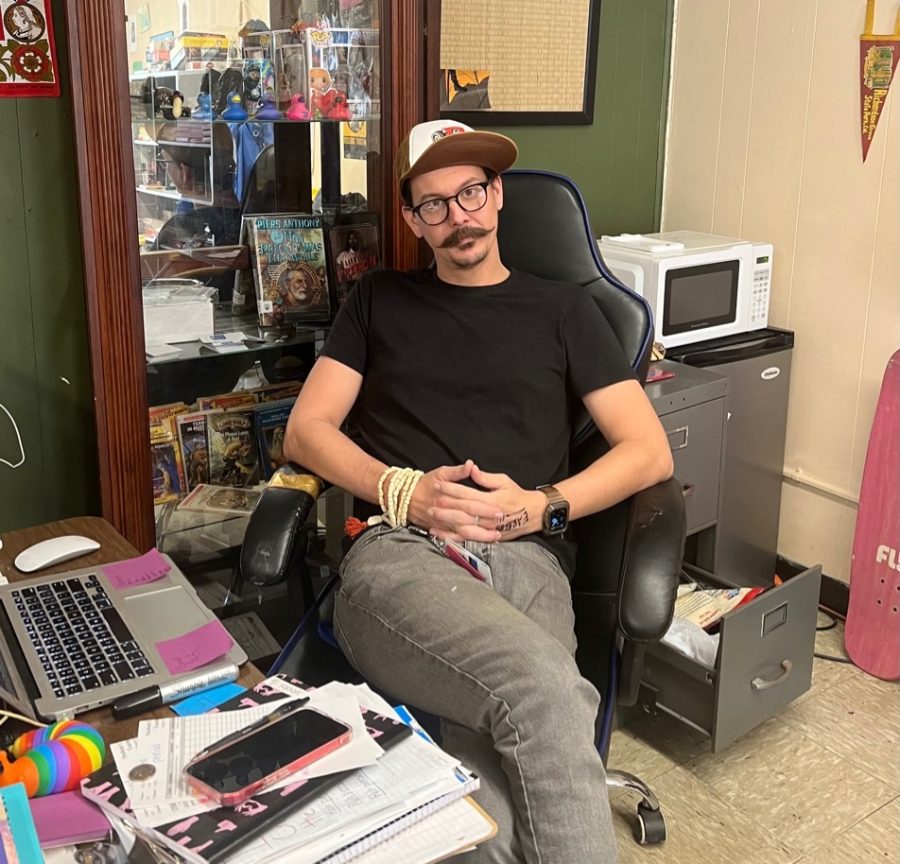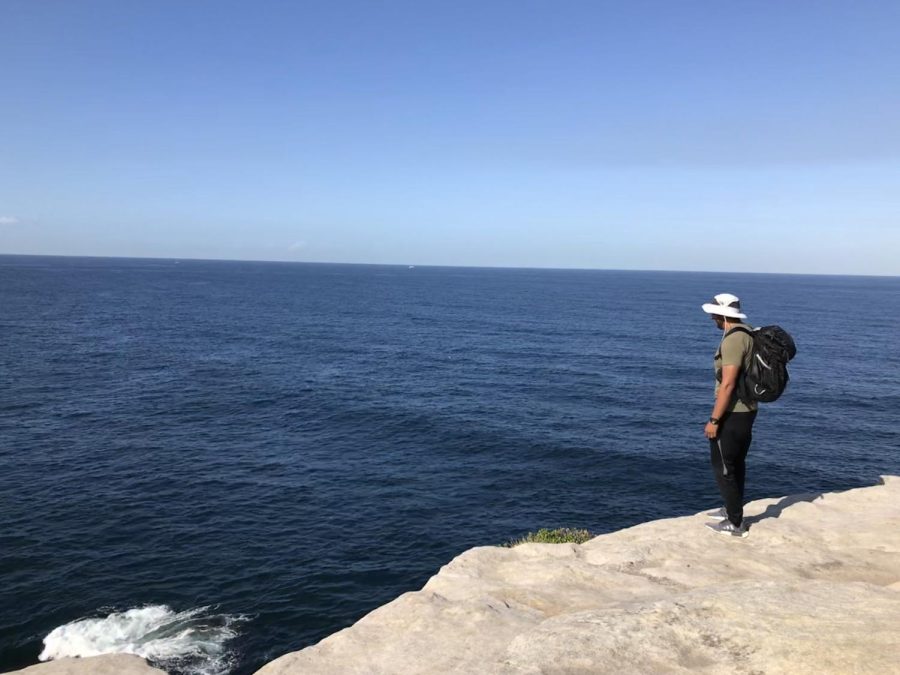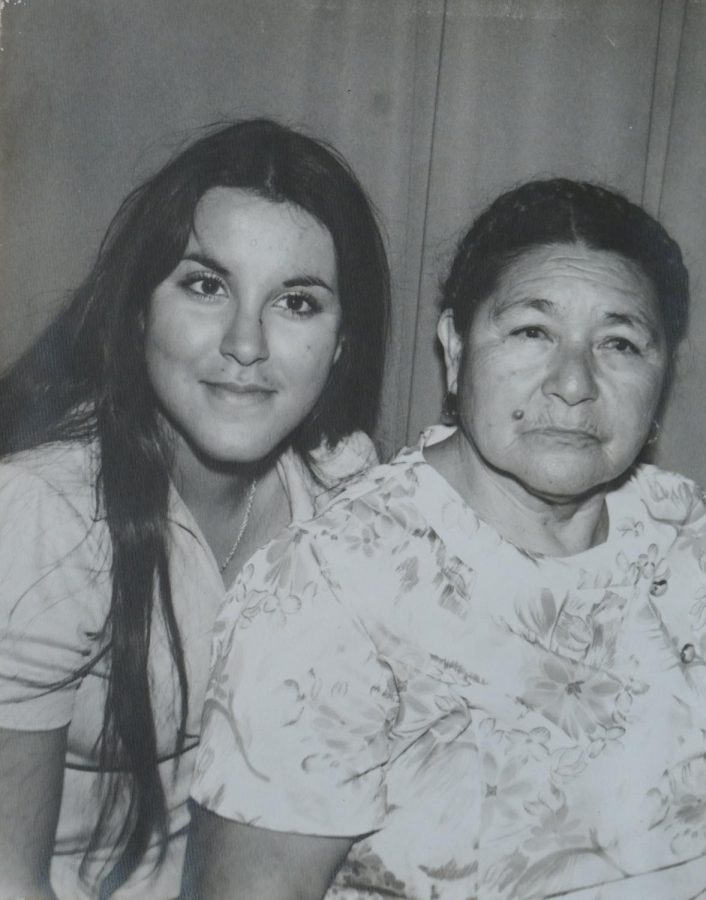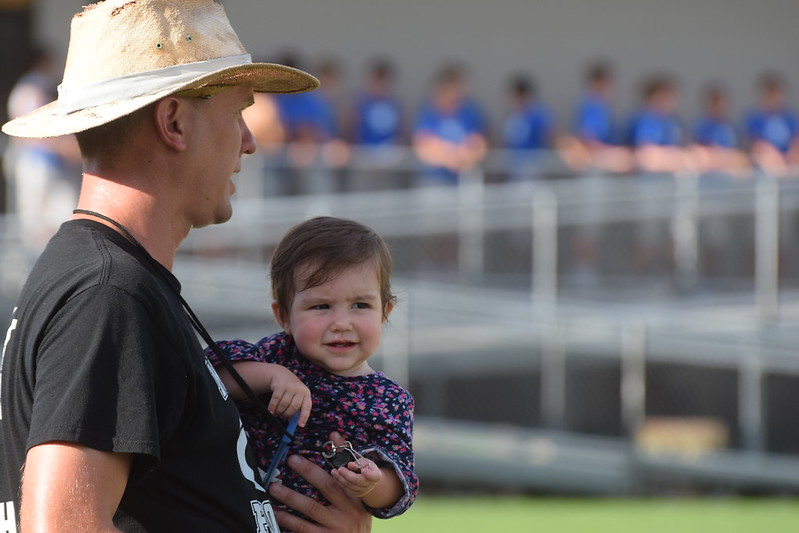The Proust Questionnaire, named after French writer Marcel Proust, is a series of 35 questions meant to gauge the personality and values of the answerer. This week, The Shield interviewed history teacher Clifford Stanchos, asking him an abridged and edited version of the questions.
The Shield: What is your idea of perfect happiness?
Clifford Stanchos: My idea of perfect happiness would be being free from want. If you look to psychology for that, it would be Maslow’s hierarchy of needs. I’m well accommodated when it comes to food, shelter, and water. The question is do I get to that top tier of self-actualization outlined by Maslow. Do you feel you are fulfilling a purpose in life. Free from want could mean any materialistic things, and I think I have everything I need. The ultimate way to happiness is to be satisfied with your role in life and your contribution.
TS:What is your greatest fear?
CS:Getting a phone call and finding out my wife is dead. It really would be a fear of mine to have anyone close to me die, but my wife is the closest to me. Just not being present and being able to stop it. It would also be tragic to see my wife die, but I would rather see it happen then have to hear it after the fact.
TS: What is a trait you most deplore?
CS: The trait I most deplore is the manipulation of others for self gain.
TS: Who is a living person that you most look up to?
CS: There is a guy who I know named Andres Brolis; he’s a friend that I met through my wife. He’s married to my wife’s best friend Nadia. This past summer we went to their property in West Virginia, and he lives a life that I am striving to achieve. His views on the environment and the nature of work, and what he does for sustainability. He started a company that does composting for other people, and he enjoys the outdoors like I do myself, but he is somebody who works for the National Parks Service and is trying to be a park ranger. I believe the biggest issue facing us is climate change change and the apathy surrounding it. I feel that I could do more to be a part of the solution to these environmental problems. Andres is living the life that I want to try to live. He is helping work to save the environment.
TS: What is your greatest extravagance?
CS: Travel. I love to travel. If it’s weekend trips, spring break, fall break, winter break and especially summer break, my wife and I love to travel. Whether it’s to Europe or the National Parks we’re going to go somewhere. It’s a tradeoff, I could spend more time with my family in small town Texas, where I grew up. But I choose to travel the world and see France, Germany, Portugal, etc. We just booked our tickets to go to Canada. We’re going to Calgary and Banff.
TS: What is your current state of mind?
CS: It is influenced by my profession of education. It varies based on the semester. My current state of mind is restless. Politically I feel there are issues that America faces currently, and I just wonder if I’ve done enough to help in that regard. I feel that there are changes that I can make as a teacher, but when you get into the second semester you’re kind of set in your ways. So I’d say I’m restless, because I wonder if I’m doing everything I can do.
TS: What do you consider the most overrated virtue?
CS: Loyalty is my most overrated virtue because it comes up a lot. Often times we need someone to question us. That’s why I like my wife; we talk a lot. I like to state my opinion politically, and my wife is not afraid to question what I say. Sometimes loyalty can lead you into a group think, where you haven’t considered enough options. It’s especially overrated when you consider it in political settings, how bureaucracy works or other institutions beyond government.
TS: On what occasion do you lie?
CS: Lying is OK when it does no harm, and at the same time it alleviates some kind of harm, such as a white lie. For example, when somebody asks you what your thinking and what your thinking is in no way reasoned but rather a knee-jerk reaction, you might want to give somebody an answer that’s not fully your opinion. If somebody needs you to tell them something to better their emotional state, then you can tell them what they want to hear. If it does not do any harm to the person, then it is OK to lie.
TS: What character trait do you value most in a co-worker?
CS: I would say the ability to openly question and the ability to listen at the same time. This New York Times author Charles Duhigg wrote a couple books that fall in the self-help category (i.e. The Power of Habit (2012) but he references a lot of psychological studies to back up his books. One thing that Google and other Fortune 500 companies are doing is trying to determine what things make certain teams work better than others. Is it a strong leader, a democratic leader, a hands-off leader, that kind of stuff. What they found was that one of the best characteristics of a successful group is a group that feels comfortable saying whatever they feel, not being afraid of being judged. So you need somebody who can listen empathetically and understand why you say what you say, but at the same time being able to question it. Teachers plan together because everything is always changing; it’s tough, so it’s good to have people that can question me and listen so I can be a better teacher.
TS: What character trait do you value in a student?
CS: I value grit in a student. Grit is hard to describe, but you know what it is when you see it. It’s the ability to never give up. Students might think that what they’ve done is enough. It’s never enough, and the apex of self-actualization is some university or career. Just because you’ve shown some proficiency in some high school class is not enough to show you’ll make it in the real world. It’s hard to judge a student that does well with their grades because they might face hardship when they reach the university level. These students believed that they knew what they were doing, but they were never met with a hardship that made them rethink their strategies. I like to see students that have to do that, so I try to design a course that will do that for students. I want to keep the bar high and see if the students will rise to the occasion. It’s not about who knows the most; it’s about who works the hardest. That is discussed in Charles Duhigg’s The Power of Habit, and he looks at the military, and this a thing educators deal with as well: to show that the military found you don’t tell people, “Good job,” or “You’re really smart”; you tell them, “Good job; I could tell you worked hard on that.” If you think that what you’ve done is because you’re smart, you’re not going to keep working. Really, so many people that are “smart” really had to work hard to get there, and we have recognize that.
TS: Which living person do you despise?
CS: I don’t really despise anyone; that’s a strong word. I strongly disagree with our president because of the way he conducts himself, and the traditions he has broken and expectations with how a democratic republic works. I disagree politically with his positions, but I don’t despise him. I don’t think that all of what he does is a reflection of his personality. There is a lot a president has to do that is beyond his control. Even if we have someone that we despise, we have to consider what factors made them who they are and what makes them do what they do. When we consider this, it makes it unhealthy to despise anyone. While people’s actions have consequences, there are also factors out of people’s control that should be considered when deciding how to judge a person. The person I most disagree with is Donald Trump right now because he gets the most press time. I’m sure that there are plenty of other people I disagree with, but the president is the most readily apparent.
TS: Which words or phrases do you most overuse?
CS: The usual conversation fillers, you know, like “like” and “you know,” which I just said. The term “actually.” That goes back to my time giving tours at the Texas State Capitol. When giving a tour, we want to emphasize the historical significance of something or the truthfulness of something by saying “actually.”
TS: What or who is the greatest love of your life?
CS: My wife Madeline is my greatest love of my life. That’s why I married her; it wasn’t a shotgun wedding or anything like that. We met on my birthday 11 years ago, and it was a good birthday present. We have a lot of common interests: we’re both teachers, so that enables us to have a lot of time together, time that most people don’t [have]. We go on road trips, field trips; we’ve driven to Glacier National Park and the Colorado Rockies, and a lot of times we hear from people that they say they would hate being on a road trip with their husband or wife. I’m often taken aback from this idea that somebody would find it dreadful to be in a car for an extended period of time with their husband or wife. My wife came in at an important point of my life and has helped me grow, and she reflects what I enjoy in life, and we click very well. I love traveling with her.
TS: When and where were you happiest in your life?
CS: I asked that question to my psychology classes as a warm-up to go over the different types of memories, such as procedural (learning to ride a bike), semantic (facts like George Washington was the first president of the U.S.) and episodic memories, like “When were you happiest in your life?”. There are many times that I have been happy in my life. Like yesterday, the sun was out, there was a nice breeze, I had a friend in from out of town and we all had dinner together, my wife and her friend; we had a great conversation. I came back to my house and cuddled with my two cats. Everything seemed right. If I were to pick a day I was happiest in my whole life, it wouldn’t be my wedding day because I was nervous the whole day. I would say I was happiest the day I proposed. My wife and I were both hiking up to a waterfall in Yosemite National Park, and the sun was out, the birds were chirping, the water is rushing by, and you’re just breathing that fresh pine scent, enjoying life. Any time I’m out in nature I’m happy. Any time I’m with my wife Madeline, who enjoys the same things I do. So really, any day I can spend outdoors with my wife I’m happy.
TS: Which talent would you most like to have?
CS: Social networking, that’s something I could improve upon. Being able to keep track of multiple people and staying up-to-date with your friends. When you’re busy with your day-to-day schedule and as you get older, it gets harder to have meaningful relationships with the people you would like to. It can be a simple as calling people or having lunch with them. When you think of a talent, it could be an artistic talent, or a mathematical talent or an athletic talent. I feel social networking is a talent. The ability to improve my social skills is a talent I would like to have.
TS: What has been the greatest moment you have had while teaching at McCallum?
CS: Any moment where things click with your students. When you as a teacher design a lesson with certain objectives at hand and you have to deal with a wide variety of students from different backgrounds and levels of enthusiasm for what you’re doing, you have to try to get everyone to do what you’re trying to do and achieve the objectives you’ve set forth, doing it in a way that really connects with the class. Those days are hard to come by. It really is great to have a day where everything comes together, and everyone participated in the activity and learned something from it. As far as memorable moments while at McCallum, the time on Halloween when the power went out was interesting. That’s really a test of how well you can keep your class engaged, especially since everyone was in Halloween costumes, and the school was keeping students in their rooms. You needed a escort with a flashlight to take you to the restroom. That was memorable because I rarely dress up for Halloween, and that year I was full-on face-painted like a zombie with blood on my shirt. We took that time to tell scary stories and use that opportunity to get to know one another.
TS: If you could change anything about yourself, what would it be?
CS: That connects with a great issue of mine, which is following through. I’ve got a lot of ideas of what I want and where I’m going, but I don’t follow through on all of those, so if I could be better at following through on ideas and dreams I have for myself; that would be good. I already carry out a lot of what I want to get done, but there is more left on the table that I would like to do.
TS: If you were to die and come back as a person or a thing, what or who would it be?
CS: I’m pretty satisfied with who I am; it took long enough to figure out my life. I would hate trying to figure out what it’s like to be Ben Franklin. I wouldn’t come back as a person; I like being Clifford Stanchos. I was with a group of friends, and the question came up: would you rather be a ghost or a zombie? It’s one of those philosophical questions. If you pick a zombie, you’re saying, “I don’t have to deal with it anymore”; it’s the end of life. As a ghost you live forever. You have thoughts, regrets; you have to see everything going on around you but not participate. However you are a thinking individual; it is an extension of your life. When you become a zombie, you just do things. You eat brains and walk around. You don’t have to think about anything. As a ghost you get to think, but you also have to live forever in this grey area between life and death. It’s similar to the Myth of Sisyphus. Sisyphus has been punished in hell to roll this boulder up this hill, but once the boulder gets to the top it rolls back down again. Sisyphus is stuck eternally rolling this boulder up the hill. You can look at it two ways: one is that, “I hate this. I just want to curse the gods.” The other way is to realize this is what your supposed to do and find some meaning in it. Think about it critically and understand why you’re pushing that boulder. I would probably pick some animal that lives a long time, that has ample food supply that is out in some pristine environment yet to be corrupted by mankind. I would probably pick a tortoise living on an isolated island in the Pacific. I would sit there on the beach enjoying life free from the influence of mankind.
TS: Where would you most like to live?
CS: My wife and her family are from Alaska, and we went to Fairbanks to visit her uncle one time. Anywhere you can have large tracts of pristine landscape and be able to explore that, I would like to live there. We asked this question in a department meeting recently; everyone in the social studies department was able to put a pin where they wanted to retire. I chose Alaska, and people asked why I chose Alaska because it’s cold. I said, “Alaska won’t be cold in 30 years when I retire.” Unfortunately, due to global warming, Alaska will be the prime place to live as far as climate, with longer and longer summers. I might be wrong, and climate change might affect the climate there negatively. Alaska is beautiful.
TS: What is your favorite occupation?
CS: I really do enjoy teaching, not just for the time off, but the people I get to meet, the students I get to interact with, and the freedom I have designing lesson plans, [and] the growth I get to see in people. An occupation I would like to have is working as a park ranger because I love the outdoors, and it would be great to know as much as I can about an area and be able to share my knowledge with others so they can appreciate that area too.
TS: What do you most value in friends?
CS: That’s a double-edged sword, because while I enjoy having friends that I agree with politically, I also find value in having diversity in my friends. Having friends with different views can help me grow my understanding of the world around me. It is good to have friends with different interests and pursuits, like a friends who’s an engineer, one who’s a lawyer, etc., that help me to widen my knowledge of the world.
TS: Who are your favorite writers?
CS: My favorite writer is Bill Bryson; he’s a British author whose breakout novel was A Walk in the Woods (1997). He’s a humorous writer who incorporates a lot of research into his work. He’s a nonfiction writer who writes like a fiction writer. One of my favorite books by him is A Short History of Nearly Everything, where here he goes on a year-long journey to explain everything in the universe in layman terms, with anecdotes, stories about discoveries, and humor. It reads very well. I also read a lot of graphic novels. The Sandman series by Neil Gaiman is really great. Alan Moore is one of my other favorite graphic novelists. He wrote V for Vendetta, as well as The Watchmen and From Hell–two great graphic novels.
TS: Which historical figure do you most identify with?
CS: I identify with but don’t resemble them. These historical figures are historical for a reason. They are larger than life. Teddy Roosevelt is a person I identify with [because of] his love for nature and contributions to the conservation movement in America. I also identify with his larger-than-life personality. I often times think I have a lot of energy and a good sense of humor like him. I also enjoy hiking in the woods like him. He was a Social Darwinist, imperialist and a racist, so I don’t identify with him there. That’s where the passage of time separates us. He was also more ambitious than me; he read like a book a day. More modern times, I relate with LBJ. He grew up outside a small Texas town like me. He was a teacher for a few years. He was a civil rights activist, so I identify with his beliefs. This connects to what I said earlier. We are all contributing to history. It’s something called agency, this idea that we the people move history. LBJ signed the Civil Rights Act, but it was all the teachers, students and people that were out protesting (getting sprayed by water hoses and attacked by dogs) who pushed LBJ to sign that bill. As a teacher, I’m making history; maybe someday you’ll be the future president, and maybe there was something I did that helped move you along that path. I am like any history teacher in the past who might have inspired somebody to go into politics. Lots of presidents went to public school. Presidents like Bill Clinton, Lyndon Johnson and Reagan all went, and there was maybe some teacher that moved them along in their political pursuits.
TS: What are your favorite names?
CS: I like to gravitate towards obscure names. My name is Clifford, so that led to any number of childhood dilemmas. My wife’s name being Madeline, we’re both named after children’s books. As a tour guide at the Capitol, I read up on a lot of Texas history, and there was this guy named Erastus “Deaf” Smith. He was deaf in one ear, and he played a pivotal role in the Battle of San Jacinto in 1836. I kind of like the name Erastus because if you think about it, that would make my son’s name Erastus Stanchos. I really like the way that sounds, even though it sounds ridiculous, especially to my wife. I also like the name Thaddeus; I had a student once named Thaddeus. There was a famous radical Republican named Thaddeus Stevens that was in Congress after the Civil War under Andrew Johnson’s presidency (after the assassination of Abraham Lincoln). Just for the love of my cats, I like the name Neko. We named one of our cats Neko after the musician Neko Case. Our other cat’s name is Gonzo. He was named after the town my wife and I found him in, Gonzales, Texas. In general, I like names that are unique. I tend to steer clear of the common biblical canon of Luke, Michael, John.
TS: What is your greatest regret?
CS: I would say that I regret not doing what I love more. I don’t paint enough. I don’t draw enough. I don’t reach out to friends enough. Any of those could be ongoing regrets. As far as my past, I’m pretty happy with the way things turned out. I was a theatre major; I didn’t pursue that, I went to advertising, and I didn’t pursue that either. I don’t regret that decision. I’m able to keep selling things here at school. The only difference is that people (students) are forced to buy what I’m selling, and so I like it even more that way.
TS: How would you like to die?
CS: Maybe I will die in old age after some strenuous hike that people didn’t want me to do. I imagine myself as some stubborn old man that wants to hike the Appalachian Trail and overexert myself and die. That being said, I wouldn’t want to have a heart attack and die in pain. I feel the best way to go would to die peacefully in your sleep after a long, happy life. There is something romantic about saving somebody in a bank heist or taking a bullet for my wife. That’s not my preferred way to die; I would rather not have to face down some dire life-or-death situation before I die. I’d rather go peacefully in my sleep, as I’m sure most people would.
TS: What is your motto?
CS: Laugh as much as you can, smile as much as you can, and enjoy life as it comes to you. Look at things on the lighter side; don’t get to stressed about things. Not to say that you should be free from worry, but the more you can look at things and maintain a sense of humor, the longer you’ll live and the happier you’ll be. Go with the flow.


